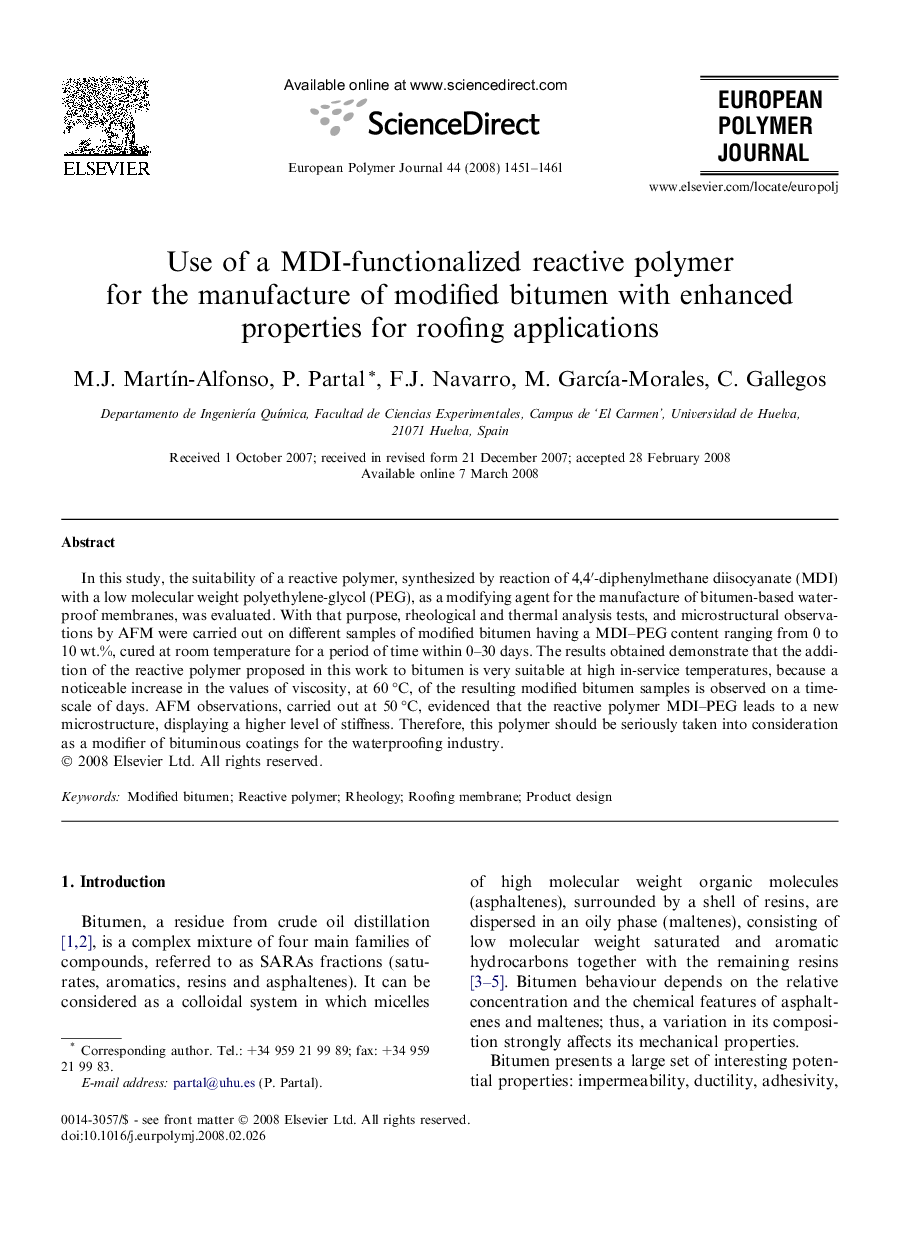| Article ID | Journal | Published Year | Pages | File Type |
|---|---|---|---|---|
| 1403120 | European Polymer Journal | 2008 | 11 Pages |
In this study, the suitability of a reactive polymer, synthesized by reaction of 4,4′-diphenylmethane diisocyanate (MDI) with a low molecular weight polyethylene-glycol (PEG), as a modifying agent for the manufacture of bitumen-based waterproof membranes, was evaluated. With that purpose, rheological and thermal analysis tests, and microstructural observations by AFM were carried out on different samples of modified bitumen having a MDI–PEG content ranging from 0 to 10 wt.%, cured at room temperature for a period of time within 0–30 days. The results obtained demonstrate that the addition of the reactive polymer proposed in this work to bitumen is very suitable at high in-service temperatures, because a noticeable increase in the values of viscosity, at 60 °C, of the resulting modified bitumen samples is observed on a time-scale of days. AFM observations, carried out at 50 °C, evidenced that the reactive polymer MDI–PEG leads to a new microstructure, displaying a higher level of stiffness. Therefore, this polymer should be seriously taken into consideration as a modifier of bituminous coatings for the waterproofing industry.
